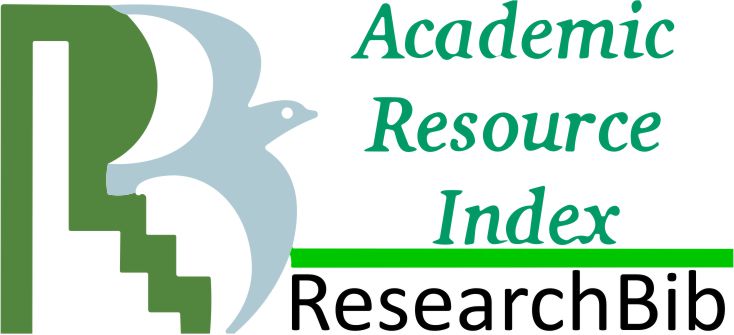DOI
10.21002/jaki.2023.05
Abstract
Indonesia fully supports efforts to disclose corporate social responsibility (CSR) to increase awareness of issues regarding the environment globally, as stated in the Sustainable Development Goals (SDGs). The connection between the disclosure of corporate social responsibility and the stock price crash risk is examined in this study. Furthermore, we analyse and check robustness and endogeneity issues to avoid variable bias selections. The study uses as its sample companies that are listed on the Indonesia Stock Exchange and follow the Global Reporting Initiative (GRI) for corporate social responsibility. It is found that companies with corporate social responsibility disclosures have a positive relationship with the stock price crash risk. Empirically, this finding contributes to broadening the scope of CSR research, while the relationship described in CSR is in line with the stock prices crash risk. This study shows that corporate social responsibility reporting has another side, which can be explained by management tactics. Thus, this study provides a new, broader, picture related to the characteristics of corporate events in Indonesia, showing that CSR disclosure patterns can result from corporate management interventions.
Bahasa Abstract
Indonesia mendukung penuh upaya pengungkapan tanggung jawab sosial perusahaan untuk meningkatkan kesadaran terhadap isu-isu lingkungan secara global, sebagaimana tertuang dalam Tujuan Pembangunan Berkelanjutan (SDGs). Hubungan antara pengungkapan tanggung jawab sosial perusahaan dan risiko jatuhnya harga saham diteliti dalam penelitian ini. Selain itu, kami menganalisis dan memeriksa masalah robustness dan isu endogeneity untuk menghindari pemilihan bias variabel. Penelitian ini menggunakan sampel perusahaan yang mengikuti Global Reporting Initiative (GRI) dan melaporkan tanggung jawab sosial yang terdaftar di Bursa Efek Indonesia. Temuan kami menunjukkan perusahaan dengan pengungkapan tanggung jawab sosial perusahaan memiliki hubungan positif dengan risiko crash harga saham. Secara empiris, temuan ini berkontribusi memperluas ruang lingkup penelitian CSR, hubungan yang dijelaskan dalam CSRD sejalan dengan risiko crash harga saham. Studi ini menunjukkan bahwa pelaporan tanggung jawab sosial perusahaan memiliki sisi lain yang dapat dijelaskan oleh taktik manajemen. Dengan demikian, penelitian ini memberikan gambaran baru yang luas terkait dengan karakteristik corporate event di Indonesia, bahwa pola pengungkapan CSR dapat dihasilkan dari intervensi manajemen perusahaan.
References
Asrori, A. 2019. Company Characteristics on the Corporate Social Reporting Index of Corporate Social and Environmental Disclosure in Indonesian Public Companies. 670216917.
Barnea, A., and R, Amir. 2010. Corporate Social Responsibility as a Conflict Between Shareholders. Journal of Business Ethics, 97 (1), 71–86.
Cao, F. et al. 2018. Trade Credit Financing and Stock Price Crash Risk. Journal of International Financial Management and Accounting, 29 (1), 30–56. https://doi.org/10.1111/jifm.12067
Carroll, A. B., and K. M. Shabana. 2010. The Business Case for Corporate Social Responsibility: a Review of Concepts, Research and Practice. International Journal of Management Reviews, 12 (1), 85–105.
Chen, J. et al. 2023. Green Lending and Stock Price Crash Risk: Evidence from the Green Credit Reform in China. Journal of International Money and Finance, 130 (017), 102770. https://doi.org/10.1016/j.jimonfin.2022.102770
Cheng, B., I. Ioannou., and G. Serafeim. 2014. Corporate Social Responsibility and Access To Finance. Strategic Management Journal, 35 (1), 1–23.
Dai, J., C. Lu, and J. Qi. 2019. Corporate Social Responsibility Disclosure and Stock Price Crash Risk: Evidence from China. Sustainability (Switzerland), 11 (2). https://doi.org/10.3390/su11020448
Derwall, J., K. Koedijk., and J. Ter Horst. 2011. A Tale of Values-Driven and Profit-Seeking Social Investors. Journal of Banking and Finance, 35 (8), 2137–214s7.
Donaldson, T., and L. E. Preston. 1995. The Stakeholder Theory of The Corporation: Concepts, Evidence, and Implications. Academy of Management Review, 20 (1), 65–91.
Dumitrescu, A., and Zakriya, M. 2021. Stakeholders and The Stock Price Crash Risk: What Matters in Corporate Social Performance? Journal of Corporate Finance, 67, 101871.
Dutordoir, M., N. C. Strong., and P. Sun. 2018. Corporate Social Responsibility and Seasoned Equity Offerings. Journal of Corporate Finance, 50, 158–179.
Faisal, F. et al. 2020. The Role of Government Regulations in Enhancing Corporate Social Responsibility Disclosure and Firm Value. The Journal of Asian Finance, Economics, and Business, 7 (8), 509–518.
Freeman, R. E., and S. Dmytriyev. 2017. Corporate Social Responsibility and Stakeholder Theory: Learning from Each Other. Symphonya. Emerging Issues in Management, 1, 7–15.
Freeman, R. E., and J. Mcvea. 2001. A Stakeholder Approach to Strategic Management. The Blackwellhandbook of Strategic Management, 189-207. Analyse D’une Revue De Litterature.
Galema, R., A. Plantinga., and B. Scholtens. 2008. The Stocks at Stake: Return and Risk in Socially Responsible Investment. Journal of Banking and Finance, 32 (12), 2646–2654.
Gray, R., R. Kouhy., and S. Lavers. 1995. Corporate Social and Environmental Reporting: A Review of the Literature and a Longitudinal Study of UK Disclosure. Accounting, Auditing and Accountability Journal.
Greiner, A., L. Patelli., and M. Pedrini. 2020. Characteristics of Managerial Tone Priced by Auditors: Evidence based on Annual Letters to Shareholders of Large US Firms. Auditing: a Journal of Practice and Theory, 39 (2), 139–161.
Halabi, A. K., and M. Samy. 2009. Corporate Social Responsibility (CSR) Reporting: A Study of Selected Banking Companies in Bangladesh. Social Responsibility Journal.
Hao, D. Y., G. Y. Qi., and J. Wang. 2018. Corporate Social Responsibility, Internal Controls, and Stock Price Crash Risk: The Chinese Stock Market. Sustainability (Switzerland), 10 (5). https://doi.org/10.3390/su10051675
Harymawan, I. et al. 2020. Family Firms, Political Connections, and Managerial Short-Termism. Journal of Security and Sustainability Issues. https://doi.org/10.9770/jssi.2020.9.j(14)
Heckman, J. J. 1976. The Common Structure of Statistical Models of Truncation, Sample Selection and Limited Dependent Variables and a Simple Estimator for Such Models. Annals of Economic and Social Measurement, 5 (4), 475–492. http://ideas.repec.org/h/nbr/nberch/10491.html
Hemingway, C. A., and P. W. Maclagan. 2004. Managers’ Personal Values as Drivers of Corporate Social Responsibility. Journal of Business Ethics, 50 (1), 33–44.
Hunjra, A. I., R. Mehmood., and T. Tayachi. 2020. How Do Corporate Social Responsibility and Corporate Governance Affect Stock Price Crash Risk? Journal of Risk and Financial Management, 13 (2), 30.
Jha, A., and J. Cox. 2015. Corporate Social Responsibility and Social Capital. Journal of Banking and Finance, 60, 252–270.
Kim, Y., H. Li., and S. Li. 2014. Corporate Social Responsibility and Stock Price Crash Risk. Journal of Banking and Finance, 43, 1–13.
Kim, Y., M. S. Park., and B. Wier. 2012. Is Earnings Quality Associated with Corporate Social Responsibility? The Accounting Review, 87 (3), 761–796.
Lee, K. J. 2019. The Effects of Social Responsibility on Company Value: a Real Options Perspective of Taiwan Companies. Economic Research-Ekonomska Istraživanja, 32 (1), 3835–3852.
Lee, M. Te. 2016. Corporate Social Responsibility and Stock Price Crash Risk: Evidence from an Asian Emerging Market. Managerial Finance, 42 (10), 963–979. https://doi.org/10.1108/mf-10-2015-0278
Lee, Y.-C., Y.-C. Lu., and Y.-C. Wang. 2019. Corporate Social Irresponsibility, CEO Overconfidence, and Stock Price Crash Risk. Applied Economics Letters, 26 (14), 1143–1147. https://doi.org/10.1080/13504851.2018.1540835
Li, Y., P. Wang., and W. Zhang. 2023. Does Online Interaction Between Firms and Investors Reduce Stock Price Crash Risk? British Accounting Review, December, 1–27. https://doi.org/10.1016/j.bar.2022.101168
Lindgreen, A., V. Swaen., and T. T. Campbell. 2009. Corporate Social Responsibility Practices in Developing and Transitional Countries: Botswana and Malawi. Journal of Business Ethics, 90 (3), 429–440.
Margolis, J. D., H. A. Elfenbein., and J. P. Walsh. 2007. Does It Pay To Be Good? A Meta-Analysis and Redirection of Research on The Relationship Between Corporate Social and Financial Performance. Ann Arbor, 1001 (48109–1234), 1–68.
Mcwilliams, A., D. S. Siegel., and P. M. Wright. 2006. Corporate Social Responsibility: Strategic Implications. Journal of Management Studies, 43 (1), 1–18.
Mohammadi, M. A. D. et al. 2018. Corporate Sustainability Disclosure and Market Valuation in a Middle Eastern Nation: Evidence from Listed Firms on the Tehran Stock Exchange: Sensitive Industries Versus Non-Sensitive Industries. Economic Research-Ekonomska Istraživanja, 31 (1), 1488–1511.
Nasih, M. et al. 2019. Military Experienced Board and Corporate Social Responsibility Disclosure: An Empirical Evidence from Indonesia. Entrepreneurship and Sustainability Issues, 7 (1), 553–573. https://doi.org/10.9770/jesi.2019.7.1(39)
Nikolaev, V. V. 2010. Debt Covenants and Accounting Conservatism. Journal of Accounting Research, 48 (1), 51–89. https://doi.org/10.1111/j.1475-679x.2009.00359.x
Pakawaru, M. I. et al. 2021. The Relationship of Corporate Social Responsibility (CSR) Disclosure and Earnings Management: Evidence from Indonesia. The Journal of Asian Finance, Economics, and Business, 8 (2), 903–909. https://doi.org/10.13106/jafeb.2021.vol8.no2.0903
Preston, L. E., and D. P. O’bannon. 1997. The Corporate Social-Financial Performance Relationship: a Typology and Analysis. Business and Society, 36 (4), 419–429.
Visser, W. 2006. Revisiting Carroll’s CSR Pyramid: An African Perspective” in Corporate Citizenship in Developing Countries-New Partnership Perspectives, Ed. M. Huniche and E. R. Pedersen. Denmark: Copenhagen Business School Press.
Weber, M. 2008. The Business Case for Corporate Social Responsibility: a Company-Level Measurement Approach for CSR. European Management Journal, 26 (4), 247–261.
White, A. L. 2006. Business Brief: Intangibles and CSR. Business for Social Responsibility, 6, 1–10.
Wu, C. M., and J. L. Hu. 2019. Can CSR Reduce Stock Price Crash Risk? Evidence from China’s Energy Industry. Energy Policy, 128 (June 2018), 505–518. https://doi.org/10.1016/j.enpol.2019.01.026
Recommended Citation
Soeprajitno, Raden Roro Widya Ningtyas; Setiawan, Zephyra Violetta; and Na’im, Ainun
(2023)
"DOES CORPORATE SOCIAL RESPONSIBILITY DISCLOSURE INCREASE THE STOCK PRICE CRASH RISK? EVIDENCE FROM INDONESIA,"
Jurnal Akuntansi dan Keuangan Indonesia: Vol. 20:
No.
1, Article 5.
DOI: 10.21002/jaki.2023.05
Available at:
https://scholarhub.ui.ac.id/jaki/vol20/iss1/5
Revisi Akhir Upd. 20230703












